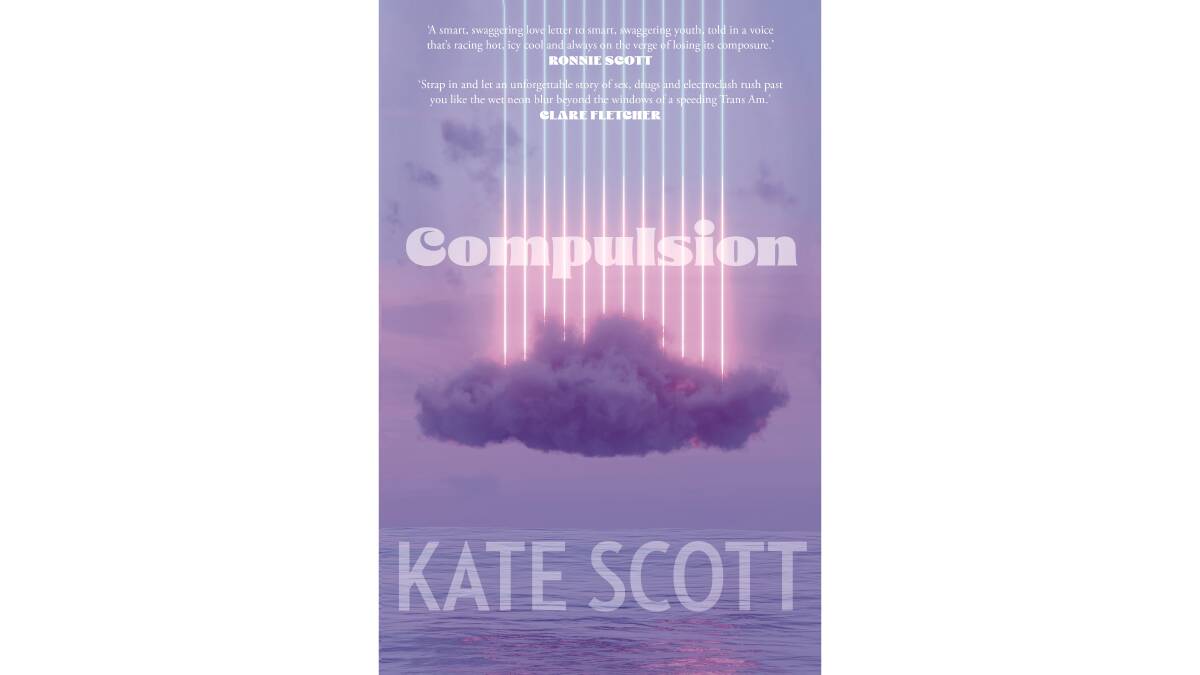
- Compulsion by Kate Scott. Hamish Hamilton. 288pp. $32.99.
We use music preferences as a quick indicator of character. It's easy to form a judgement flicking through a new friend's record collection - or, these days, seeing what they curate for themselves in playlists. But the song lists inscribed on the cardboard insert of a cassette case, no matter how carefully selected, do not reveal a fully formed person.
Subscribe now for unlimited access.
$0/
(min cost $0)
or signup to continue reading
Kate Scott leans heavily on playlists in her debut novel, Compulsion, set in the early years of this millennium and drawn closely from experience. Lucy, a 24-year-old music magazine editor, divorced and with that knack for discovering the undiscovered, is holed up in her grandparents' mid-century house in a coastal town, where she is supposed to be writing a book about music and existentialism. And among the cast is Robin, back in the town where he grew up while his grandmother dies. He gets sucked into the party life centred at Lucy's house, where music is endlessly discussed and the follies of youth play out, often with chemical aids.
It's little wonder Lucy and Robin are drawn together, but while they talk constantly they don't actually tell each other how they are felling. Scott's portrait of love forming on uncertain ground is achieved with careful, and compelling, restraint. The dialogue is laden with philosophical flourishes, but clever young people do really talk like that, sometimes at painful lengths. There is a bibliography to source all this conversational philosophising.
But too often Scott relies on long lists of songs to fill out the description of a scene. The book comes with its own soundtrack (and even the web address of a corresponding Spotify playlist). One particularly intimate scene comes with a list of the eight songs played in those moments, which like most lists doesn't add a lot of emotional resonance unless one knows the music.

Scott's novel is stronger when she describes the feeling of a song. Julian Cope's Sunspots, with its "chiming guitars", is played "over and over": "Those four chords, doubled and redoubled, jangle the grain silos and water tanks, set the foxgloves in front gardens dancing. They desiccate petals and salt them over the mountain." Listen to the song and find this is strong translation of music's emotional power into the prose of a novel.
Compulsion has been published amid a Y2K revival, as people who don't remember it the first time grasp back at the styles and modes of two decades ago. Interestingly, the characters are reaching back 20 years from their own time to the 1980s. It's as if the era into which one is born but cannot remember holds a special type of pulling power, present but only knowable in recreation.
Young people have obsessions like no one else, personalities defined by what they're into. Scott does well to trace how these obsessions dovetail with the angst and uncertainty of early adulthood and how quite often getting older is the only - and most obvious - path through it.
But like those effortlessly cool people at parties - the ones who know all the lyrics and have been to all the secret gigs - Compulsion's characters always remain slightly aloof and unknowable.
Looking for more reads and recommendations? Browse our books write-ups and reviews.


